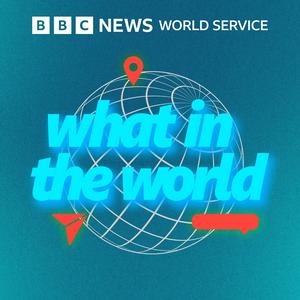For centuries, people have lived side by side with animals in harmony. But with habitats shrinking, animals such as lions and elephants are having to travel further to find food, sometimes stumbling into human territory. Crops and property are destroyed as farmers lose their livelihoods. And when their path crosses with humans it can get violent - even leading to death. As humans are killed by the animals, their communities go out to get revenge on the species.
The BBC’s reporter Shingai Nyoka in Zimbabwe tells us about the situation in her country, and what governments across Africa are doing to ensure communities can live in harmony with the animals. Plus, we hear from WWF, an independent conservation organisation, and find out how it is dealing with human-wildlife conflict in Tanzania.
Instagram: @bbcwhatintheworld
Email:
[email protected]WhatsApp: +44 330 12 33 22 6
Presenter: Iqra Farooq
Producers: Emily Horler, Benita Barden and Emilia Jansson
Video producer: Baldeep Chahal
Editor: Verity Wilde


